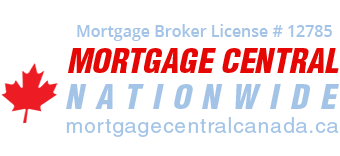Only Get a Second Mortgage After Reading This!
Some people dive into applying for a second mortgage without knowing what they are doing. As a result, their process usually takes longer, end in non-approval, or they apply for the wrong type of second mortgage for their situation. These are factors why some people end up getting disappointed and intimidated with the process of getting a second mortgage. With this article, we hope that the application process will be easier for you as you find out what to expect and more!
Definition of a Second Mortgage
A loan taken on top of an existing mortgage and secured by the value of your home is essentially what a second mortgage is. It is called a second mortgage because it only comes second in priority to your primary mortgage. A second mortgage allows you to tap as much as 90% of your home equity depending on the lender you’re talking to and other factors.
Reasons for Getting a Second Mortgage
The most common reasons for people who apply for a second mortgage is to pay for higher education, facilitate debt consolidation, or finance a home renovation. Some do it to avoid paying higher fees associated with refinancing such as when they are in the middle of their mortgage term. Other people choose a second mortgage because they can have an easier time qualifying for it than other types of loans.
Dangers of a Second Mortgage
Just like any other home loan, there are risks associated with a second mortgage for both borrower and lender. The borrower has a higher chance of having issues with payment and may lose his or her home in the process. The lender faces a higher possibility of not getting paid back because money lent via this type of loan only comes second in priority of getting paid as compared to a first mortgage. It is for these reasons that getting a second mortgage from a bank is near impossible for people with a less than stellar credit score and why it may make more sense to approach private lenders rather than approach banks.
Note that interest rates are higher for second mortgages because lenders need to cover the risks they are taking plus extra expenses such as insurance. Penalties and fees are higher for the borrower as well. If you’re applying for a second mortgage, make sure that you read the fine print more than once to avoid possible issues.
Should You Apply for a Second Mortgage?
Second mortgages are great for convenience if you can qualify for them. If you have a lot of home equity, you are in a good position to negotiate better terms same as when you have a desirable credit score. If you use your second mortgage in a smart way, such as for debt consolidation, you can end up saving a lot of money.
Do you need help understanding what benefits you can get from applying for a second mortgage in Canada? We’ll be happy to discuss it with you! Contact us and our team will try their best to give you top-notch mortgage help!


